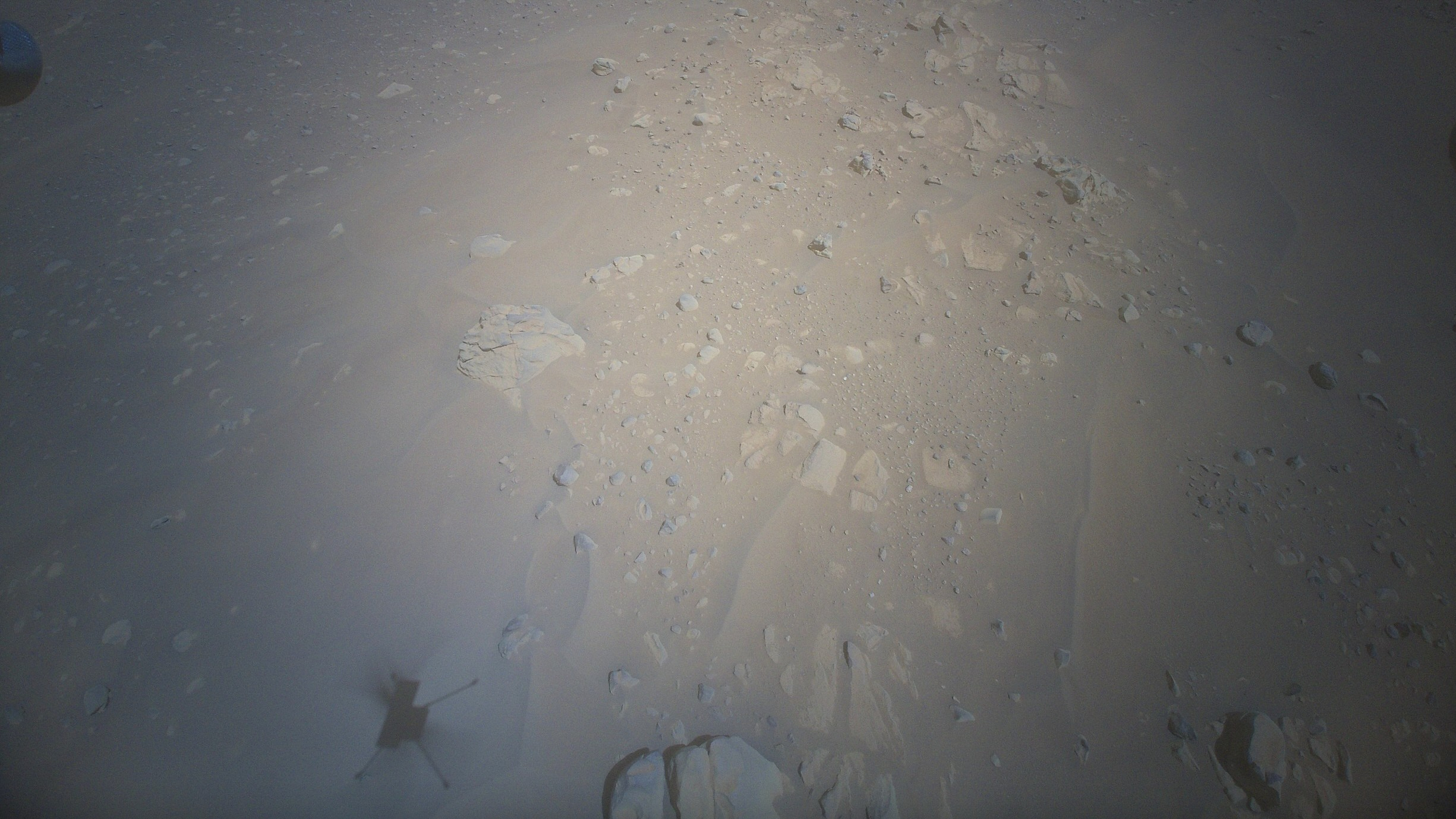
NASA's Ingenuity Mars helicopter has taken to alien skies yet again.
The 4-pound (1.8 kilograms) Ingenuity conducted its 55th flight on Aug. 12, covering a fair bit of Red Planet ground in the process.
"Ingenuity has now successfully flown on Mars 55 times! On its latest flight, the #MarsHelicopter flew 866 feet (264 m) for 143 seconds at a height of 32.8 feet (10 m)," NASA's Jet Propulsion Laboratory (JPL) in Southern California, which manages the little chopper's mission, wrote via X (formerly Twitter) on Wednesday (Aug. 16).
Related: Mars helicopter Ingenuity phones home, breaking 63-day silence
Those figures aren't records for the rotorcraft, by the way: Ingenuity has reached a maximum altitude of 59 feet (18 m), and it flew a whopping 2,310 feet (704 m) horizontally on one of its sorties.
Ingenuity has now covered a total of 41,024 feet (12,503 m) of ground and stayed aloft for nearly 98 minutes on its 55 flights, mission team members wrote on the chopper's flight log.
Ingenuity landed on the floor of Mars' Jezero Crater in February 2021 along with NASA's Perseverance rover. The chopper's main goal was to show that aerial exploration is possible on Mars despite the planet's thin atmosphere.
Ingenuity did just that over the course of five flights in April and early May of 2021. NASA then granted an extended mission, during which the helicopter is serving as a scout for the life-hunting, sample-caching Perseverance.
The little drone's success could lead to a further opening of the Red Planet's skies. NASA plans to send two Ingenuity-like helicopters to Mars later this decade, to help collect Perseverance's samples (if necessary) for a planned return to Earth.
The agency also aims to develop bigger and more ambitious Mars helicopters, which could gather a variety of scientific data on their own while exploring the planet's skies.







